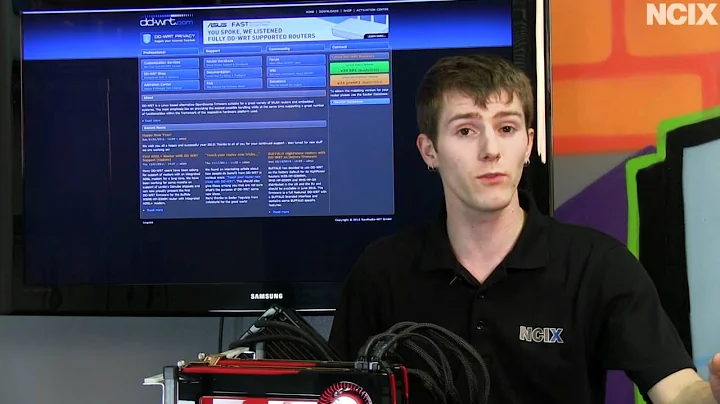OpenWrt vs DDWrt
Solution 1
Dec 2020 update: still all-in with OpenWRT, everything works beautiful.
Overall, OpenWRT if you really want flexibility. I dumped DD-WRT (WRT54G) for OpenWRT (ASUS WL-500gP) because of this (related to this), haven't had a regretful moment yet. Not even close.
- reliability – I am not aware that one is significantly more reliable than the other. Both have quite lengthy release cycles, which have yet another bunch of users complaining.
- performance – I'm pretty certain it mostly depends on the hardware device and best compatible drivers most of all.
- configurability – OpenWRT package management system should win easily here.
- ease of use – I liked DD-WRT web UI, I don't have a particular problem with LuCI either. LuCI just got bumped to 0.10 branch in 10.03.1-rc5, which is another step up. But overall I'm definitely loving OpenWRT's /etc. Things in there make sense when you need them to.
- support/docs – Both have phpBB forums with significant traffic.
Solution 2
OpenWRT all the way. Reasons:
- complete control
- modularity
- well organized
Given these parameters, you can judge the coding is in good hands. I am a developer, and I find OpenWRT very modular, very organized, with no limitations imposed. I can pick the modules I like, there are so many available. I can write an application straight in C or C++ and make it work under OpenWRT. I can change the device driver code to suit my needs.
And the whole procedure is documented well enough. Even if you are not a developer, you will find the modular approach in defining your system, stunning. A job well done by the OpenWRT team. And yes, I have used DD-WRT before using OpenWRT.
Solution 3
I might add another category (or subcategory) to the main questions:
-
upgradeability/up-to-dateness - Has the core 3rd party router firmware been updated "fairly" recently??
DD-WRT; While the widely referred-to Peacock Thread-FAQ and DD-WRT forums predominantly suggest sticking to routers' most stable versions, these firmware versions are with few exceptions over a half-dozen years old! DD-WRT updates are found in the Beta router firmware links organized by year, but it can be surprisingly difficult to find out which exact up-to-date upgrade one really needs :/
OpenWrt; The webpage downloads dot openwrt dot org shows last month's release of Chaos Calmer 15.05, so certainly the OpenWrt firmware is extremely up-to-date.
Tomato; The stock Tomato router firmware listed at polarcloud dot com's firmware link is currently at version 1.28.... from about five years ago! Sure, there are also a bunch of more updated Tomato firmware distribution variations (a.k.a. modifications or "mods") for various routers listed around, but many people either don't know about these mods or if they even work right!
Solution 4
An important consideration these days is router security.
Out of the three distributions, only the OpenWRT has a security advisories page:
https://openwrt.org/advisory/start
So basically from security standpoint, OpenWRT is the only choice. DD-WRT has nightly builds available, but there is no changelog, and the latest firmware for my particular device has 3.18.140 kernel which is EOL.
Another point is that the SVN repository of DD-WRT has only 1 contributor, while OpenWRT has some 700 contributors. Which is not necessarily mean that there is really only 1 contributor, but when a kernel security fix backport commit doesn't contain much details besides the CVE being fixed, it looks pretty suspicios from security standpoint.
Solution 5
I have no experience with OpenWRT (I may try it out some time), and my experience with DD-WRT was relatively brief.
But what I can say is that I am very happy with Tomato. While it does not support as many routers and has less features than DD-WRT, it still has a lot of features (I use the Toastman mod) and QoS works very well with it, unlike DD-WRT. It also has an attractive web-interface pretty bandwidth graphs.
Related videos on Youtube
Ioan Paul Pirau
Updated on September 18, 2022Comments
-
Ioan Paul Pirau over 1 year
I have a
TP-Link Wr1043NDrouter and I want to install one of these two firmwares:I read that I can install custom packages and do much more than I can with the original firmware.
I would like to ask someone with experience in using both OpenWRT and DD-WRT which he would recommend and why. And to give a few reference points I'm interested in:
- reliability – network stability both on cable and wireless and on the usb drive
- performance – network speed, very important also usb drive speed
- configurability – the possibility to add extensions such as a torrent client, FTP, SSH, WWW and SVN server directly
- ease of use – the ease of installation and configuration of the router
- support/docs – how much info there is if you stumble upon a problem and you have to find some documentation, or if there's any free support (but that's a longshot)
Of course I don't imagine that I will find the perfect firmware and that one is vastly superior over the other.
Also if there's anyone out there who uses one of these firmwares on a TP-Link Wr1043ND, it would be great to get some feedback about the impact of the changes from the original firmware.
P.S. I'm open also for
Tomatoif it's the better one.-
 Mark Booth almost 13 yearsI'm surprised that there isn't a wikipedia page comparing the different open firmwares. Maybe if there are good responses here it might make creating one easier.
Mark Booth almost 13 yearsI'm surprised that there isn't a wikipedia page comparing the different open firmwares. Maybe if there are good responses here it might make creating one easier. -
Lèse majesté about 12 yearsIf you want the best performance and stability/reliability, I would recommend you not run a bunch of superfluous software on your router (e.g. bittorrent client, FTP server, webserver, SVN server, etc.). Set up a separate file server and run those services on that instead.
-
 Franck Dernoncourt over 4 years
Franck Dernoncourt over 4 years -
 Mark Booth over 4 yearsSo it only took 7 years @FranckDernoncourt. *8') Add that as an answer and I'll happily vote it as useful.
Mark Booth over 4 yearsSo it only took 7 years @FranckDernoncourt. *8') Add that as an answer and I'll happily vote it as useful.
-
William Jackson almost 13 yearsMaybe he means svn.dd-wrt.com:8000/ticket/742
-
lkraav almost 13 yearsYeah, copied it straight out of bookmarks, looks like they've changed structure since then.
-
 Belmin Fernandez almost 13 yearsAgreed. Tomato is simple, no frills. And even does bandwidth throttling. Last time I tried DD-WRT, the bandwidth stuff was a premium feature.
Belmin Fernandez almost 13 yearsAgreed. Tomato is simple, no frills. And even does bandwidth throttling. Last time I tried DD-WRT, the bandwidth stuff was a premium feature. -
Ioan Paul Pirau almost 13 yearsThank you very much for your answer. It is very valuable to me as I was thinking specifically on OpenWRT when I found out about DD-WRT. Please don't mind.. I will leave the question open for some more time because I would like to get some more feedback/opinions.
-
Ither about 12 yearsBut as I know Tomato do not support TP-Link routers, not officially at least.
-
lkraav over 11 yearsI just bought a TP-Link TL-WR1043ND and slapped OpenWRT 12.09-beta on it. Everything's great so far.
-
lkraav almost 10 years@Art spelling of "moar" was quite deliberate: urbandictionary.com/define.php?term=moar But I can see how that might not be obvious for everybody. Stylistic choice, that's all.
-
 Art almost 10 years@lkraav thanks for the schooling on "moar"; was totally not obvious to me, but I now get the gist of what you meant. I learned something new today :)
Art almost 10 years@lkraav thanks for the schooling on "moar"; was totally not obvious to me, but I now get the gist of what you meant. I learned something new today :) -
lkraav almost 10 yearsYeah I imagine it something like a Walking Dead episode..
-
Ramhound over 8 yearsThis just repeats canned information and makes no attempt to answer the author's question.
-
mcint almost 4 yearsWhat kinds of modules do people write, custom, to run on a personal router?
-
JW0914 over 3 years"The interface on OpenWrt is less user-friendly" - How so? (try the Material theme, which needs to be installed); "but the GUI allows goes straight to customization" - Default page after logging in is the Status → Overview page; "Open-Wrt is more stable" - OpenWrt is a more mature OS, with a far greater user-base than DD-WRT, however there are a handful of routers DD-WRT supports that OpenWrt does not; "OpenWrt requires a bit more knowledge with what you are doing" - Have you reviewed the OpenWrt Docs site, which covers everything required?




